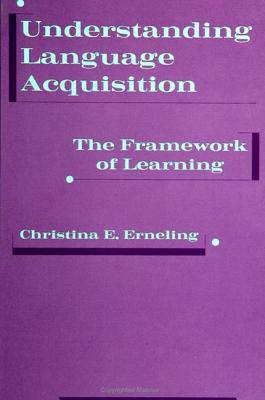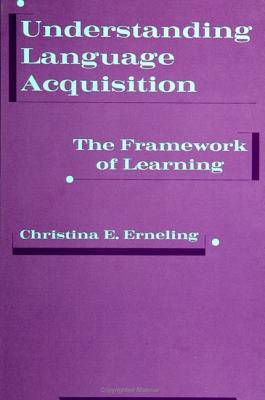
- Retrait gratuit dans votre magasin Club
- 7.000.000 titres dans notre catalogue
- Payer en toute sécurité
- Toujours un magasin près de chez vous
- Retrait gratuit dans votre magasin Club
- 7.000.000 titres dans notre catalogue
- Payer en toute sécurité
- Toujours un magasin près de chez vous
145,45 €
+ 290 points
Format
Description
How is language acquisition possible? How is it that humans, within a few years of birth, can speak and understand language, transcending both its limited experience and biological limitations? In this challenge to the narrow confines of psychology and philosophy, Christina Erneling argues that language acquisition results from the interaction between linguistic creativity inherent in language and a biological and social framework of learning. Erneling explains and critically analyzes the idea that language acquisition requires a meaningful "language of thought," contrasting this with Wittgenstein's ideas on language and learning. Erneling shows that the assumptions in J. Fodor's development of Chomky's ideas into a theory of "language of thought" have significantly influenced developmental theories, yet fail to resolve the conflict between linguistic creativity and the necessity of a framework for learning. She argues that the later Wittgenstein was more concerned with the conditions of learning than is generally appreciated and shows how his remarks can be developed into an alternative approach to language learning. Understanding Language Acquisition has profound implications for evaluating hidden metatheoretical assumptions, as well as for empirical research and methods for teaching language and treating language disorders.
Spécifications
Parties prenantes
- Auteur(s) :
- Editeur:
Contenu
- Nombre de pages :
- 256
- Langue:
- Anglais
- Collection :
Caractéristiques
- EAN:
- 9780791414613
- Date de parution :
- 01-07-93
- Format:
- Livre relié
- Format numérique:
- Genaaid
- Poids :
- 535 g







